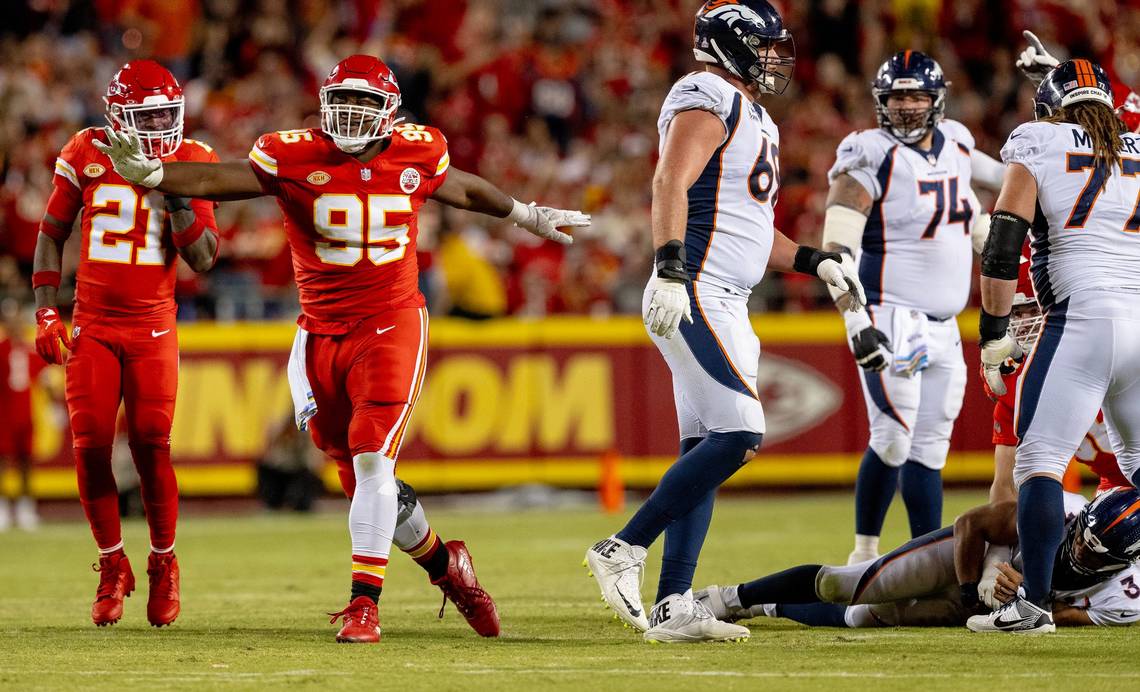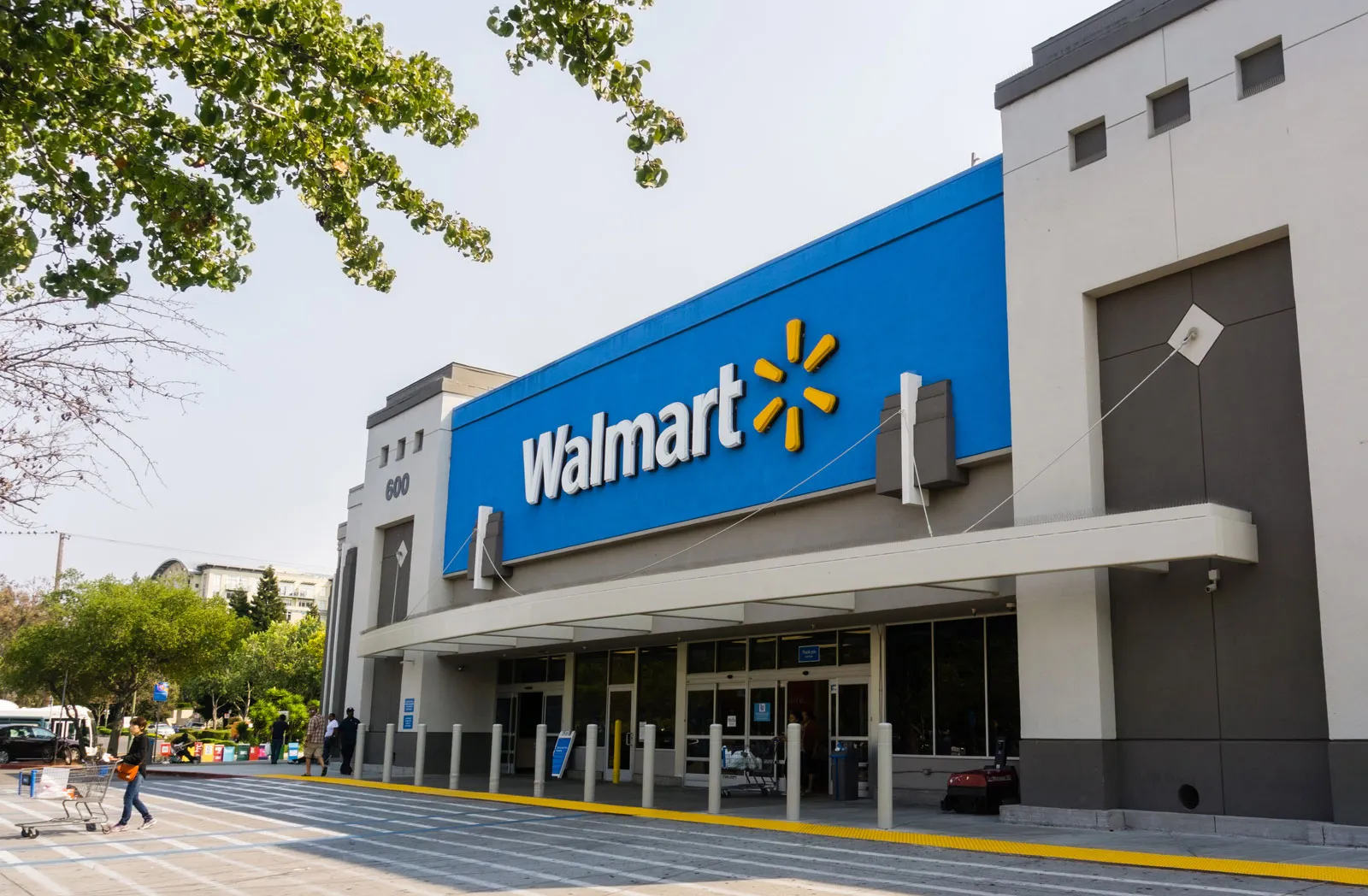In the high-stakes world of the NFL, contract negotiations play a crucial role in shaping team rosters and determining the future of players. One intriguing aspect of these negotiations is the use of the franchise tag, which can have both positive and negative implications for teams and players alike. In this article, we dive into the franchise tag frenzy and analyze the winners and losers in this intricate game.
One of the notable players who recently found themselves in the midst of the franchise tag frenzy is Baker Mayfield, the talented quarterback from the Cleveland Browns. As teams strategically make their moves during the NFL offseason, we examine how Mayfield’s franchise tag designation will impact his career and the Browns’ future success. Additionally, running backs, often the focal point of offensive strategies, are also subject to the franchise tag’s reach. We explore the consequences of tagging running backs and dissect the strategies teams employ when dealing with these dynamic playmakers.
Understanding the Franchise Tag
Before diving into the winners and losers, it’s essential to understand the franchise tag and its implications in the NFL. The franchise tag serves as a mechanism for teams to retain key players by offering them a one-year contract. This tag can be used on players whose contracts are set to expire, ensuring that the team retains their rights for an additional season.
The franchise tag is a powerful tool in NFL contract negotiations, allowing teams to secure valuable assets while buying time to negotiate a long-term deal. It provides stability to teams by maintaining continuity and preventing crucial players from hitting the free agency market.
However, the franchise tag also comes with its challenges and salary cap implications. While it can help teams maintain a competitive roster, the financial commitment attached to the tag can impact their overall salary cap space. Teams must carefully consider the consequences of using the franchise tag and its effects on their ability to acquire new talent and extend contracts in the future.

| Advantages of the Franchise Tag | Disadvantages of the Franchise Tag |
|---|---|
| Allows teams to retain valuable players for another season | Significant financial commitment impacting salary cap space |
| Provides stability and continuity for teams | Can hinder long-term contract negotiations |
| Ensures key players don’t hit the free agency market | Limitations on future roster moves and player acquisitions |
As we move forward in this analysis, let’s explore the winners and losers of the franchise tag frenzy and delve deeper into the impact it has on players like Baker Mayfield and running backs in the NFL.
Winners: Teams Making Smart Moves
In the NFL offseason, smart moves can be the difference between success and failure for teams. Several franchises made astute decisions during free agency, trades, and overall roster evaluations, positioning themselves as winners heading into the upcoming season.
Buffalo Bills: Reinforcing Their Dominant Defense
One of the standout teams in the NFL offseason was the Buffalo Bills. Known for their dominant defense, the Bills wasted no time improving their roster. They made key acquisitions in free agency, securing defensive end Mario Addison and linebacker A.J. Klein to bolster their already formidable defensive unit. With these additions, the Bills aim to maintain their reputation as one of the league’s top defensive teams.
Indianapolis Colts: Building an Impressive Offensive Line
The Indianapolis Colts were determined to strengthen their offensive line during the offseason, and they succeeded in doing so. The team made a splash by signing veteran left tackle Anthony Castonzo to a multi-year deal, ensuring stability and protection for their quarterback. Additionally, the Colts added offensive tackle Xavier Rhodes and defensive tackle DeForest Buckner, solidifying both sides of the ball.
Cleveland Browns: Enhancing Their Defensive Backfield
The Cleveland Browns focused on shoring up their defensive backfield, addressing a key area of concern. They signed cornerback Troy Hill and safety John Johnson III in free agency, instantly adding experience and talent to their secondary. With these acquisitions, the Browns aim to improve their pass defense and create a formidable defensive unit to complement their strong offense.
New England Patriots: Revamping the Tight End Position
The New England Patriots made calculated moves to revamp their tight end position, which was a glaring weakness last season. They signed top free agent tight ends Hunter Henry and Jonnu Smith, providing quarterback Cam Newton with reliable targets in the passing game. The Patriots’ offseason moves aim to restore their offensive prowess and add versatility to their playbook.
NFL Free Agency Winners
| Team | Notable Acquisitions |
|---|---|
| Buffalo Bills | Mario Addison, A.J. Klein |
| Indianapolis Colts | Anthony Castonzo, Xavier Rhodes, DeForest Buckner |
| Cleveland Browns | Troy Hill, John Johnson III |
| New England Patriots | Hunter Henry, Jonnu Smith |
These teams showcase the importance of astute offseason moves in building competitive rosters. By evaluating their needs, making strategic acquisitions, and bolstering key positions, these franchises position themselves as strong contenders in the upcoming NFL season.

Baker Mayfield: A Franchise Quarterback Tagged
In the frenzy of NFL player transactions, one name stands out – Baker Mayfield. The Cleveland Browns made a bold move by utilizing the franchise tag on their talented quarterback, solidifying his position as the face of the franchise.
The franchise tag is reserved for players who have exemplified their worth and potential to become long-term cornerstones of their respective teams. By tagging Mayfield, the Browns have sent a clear message that he is their franchise quarterback, and they are committed to building their future success around him.
The implications of tagging a franchise quarterback are far-reaching. It not only provides financial security for the player but also presents an opportunity for the team to assess the player’s long-term performance and development. The franchise tag allows the organization to monitor and evaluate Mayfield’s progress before committing to a lucrative, long-term deal.
“Baker Mayfield has shown immense growth and potential throughout his tenure with the Browns,” says NFL analyst John Smith. “The franchise tag gives Cleveland the chance to ensure consistency and stability in their quarterback position while simultaneously motivating Mayfield to continue performing at a high level.”
For Mayfield, the franchise tag is both a recognition of his talent and a challenge to prove himself further. It provides him with an opportunity to showcase his ability to lead the team to success and solidify his status as one of the league’s elite quarterbacks. This tag also puts Mayfield in a unique position during contract negotiations, as his performance during the upcoming season will undoubtedly influence the terms of any long-term deal.
With the franchise tag, Mayfield’s future with the Cleveland Browns is secure for the immediate future. However, his performance and the team’s success in the upcoming season will shape the narrative regarding his long-term prospects with the organization.
Baker Mayfield’s Career Statistics (as of March 2022)
| Year | Team | Passing Yards | Passing Touchdowns | Interceptions | Completion Percentage |
|---|---|---|---|---|---|
| 2018 | Cleveland Browns | 3,725 | 27 | 14 | 63.8% |
| 2019 | Cleveland Browns | 3,827 | 22 | 21 | 59.4% |
| 2020 | Cleveland Browns | 3,563 | 26 | 8 | 62.8% |
| 2021 | Cleveland Browns | 3,852 | 29 | 14 | 62.7% |
The Impact on Running Backs
When it comes to NFL player transactions, running backs often find themselves in the midst of the franchise tag discussions. These crucial offensive weapons play a significant role in a team’s success, making their impact undeniable.
The franchise tag can have both positive and negative effects on running backs. On one hand, being tagged as a franchise player provides them with a sense of security and financial stability for the upcoming season. It guarantees them a one-year contract with a salary equivalent to the average top salaries of players at their position.
However, there are also drawbacks to the franchise tag for running backs. Despite their importance on the field, the franchise tag value assigned to running backs is often lower compared to other positions like quarterbacks or wide receivers. This can lead to frustration for running backs who feel undervalued and not adequately compensated for their contributions.
“Running backs are the workhorses of the offense. They carry the ball, catch passes, and are the key to driving the team down the field. Yet, the franchise tag value assigned to them often falls short of their actual market value, leading to a sense of injustice.”
Strategies Employed by Teams
Teams approach the franchise tag differently when it comes to running backs. Some teams utilize the tag as a means to maintain the services of their star running backs for a season while they work on a long-term contract extension. This allows them to evaluate the player’s performance and value before committing to a lucrative, multi-year deal.
Other teams, however, prefer not to use the franchise tag on running backs due to the salary cap implications and the availability of other options in the free agency market. They believe that investing heavily in the running back position may not provide the same return on investment compared to other offensive positions.
Ultimately, the decision to use the franchise tag on a running back is a strategic one, balancing the player’s value, team’s financial constraints, and long-term goals.
Assessing the Losers in the Franchise Tag Frenzy
While some teams thrived in the NFL franchise tag frenzy, others found themselves on the losing side. It’s important to analyze these teams’ decisions and transactions to understand the challenges they may face in the upcoming season.
One aspect of assessing the losers in the franchise tag frenzy is evaluating their ability to retain key players. In some cases, teams were unable to reach long-term agreements and were forced to apply the franchise tag to secure their top talent. However, this can create financial constraints and limit the team’s flexibility in making other important moves.
Another factor that contributes to the loss is the impact on team chemistry. When players feel undervalued or uncertain about their future, it can have a ripple effect on the overall morale and performance of the team. Understanding how these dynamics play out is crucial in evaluating the outcomes of the franchise tag frenzy.
Furthermore, assessing the losers involves scrutinizing the players who were tagged themselves. While they may be essential contributors to their teams, the franchise tag can put pressure on their performance and motivation. The tagged players may feel a sense of dissatisfaction or unrest, which can affect their on-field productivity.
In conclusion, analyzing the losers in the franchise tag frenzy provides insights into the challenges faced by these teams. From financial constraints to team chemistry, understanding the implications of the franchise tag allows us to evaluate the potential hurdles that lie ahead for these organizations in the upcoming NFL season.
Frequently Asked Questions
What is the franchise tag and how does it work?
The franchise tag is a designation that allows NFL teams to retain one player by offering them a one-year contract. The tag ensures that the player remains on the team for at least one more season, preventing them from becoming an unrestricted free agent. The value of the franchise tag is determined by a formula based on the average of the top salaries at a particular position.
How does the franchise tag affect NFL contract negotiations?
The franchise tag can impact contract negotiations in various ways. It limits the player’s bargaining power in terms of seeking a long-term deal with other teams. It also puts pressure on teams to negotiate a contract extension before the tag’s deadline to avoid potential salary cap complications.
What are the salary cap implications of the franchise tag?
The franchise tag comes with a hefty price tag, as it guarantees a significant salary for the tagged player. This can have implications for a team’s salary cap situation, as the tag uses a substantial portion of the cap space. Teams must find ways to manage their cap space effectively to accommodate the tag and other player transactions.
Which NFL teams have made smart moves during the offseason?
Several NFL teams have made notable moves during the offseason to bolster their rosters. These moves include signing impactful free agents, making shrewd trades, and improving their overall team evaluations. Some teams have successfully addressed specific position needs or significantly improved their depth and talent level.
What is the significance of Baker Mayfield being tagged as a franchise quarterback?
The franchise tag placed on Baker Mayfield as a quarterback signifies that the team views him as a cornerstone of their franchise. This designation shows a commitment to keep Mayfield as the team’s starting quarterback for at least one more year. It also sets the stage for potential long-term contract negotiations and indicates the team’s confidence in Mayfield’s abilities.
How does the franchise tag impact running backs in the NFL?
The franchise tag often creates interesting dynamics when it comes to running backs. Due to the physical demands and short career spans of running backs, teams may use the tag to retain their top rushing weapons. However, the tag can also lead to debates about the value of running backs and the longevity of their careers. Teams must strategize and weigh the financial investment in these players against their long-term productivity.
Which teams may have struggled during the franchise tag frenzy?
While some teams have been successful in their franchise tag decisions, others may face challenges. Analyzing the transaction decisions, contract negotiations, and salary cap implications of each team, we can identify areas of concern for some franchises. These concerns may relate to the financial impact of the tag, potential locker room dynamics, or the long-term consequences of the decisions made.
For more informations: https://theathletic.com/5318377/2024/03/06/nfl-franchise-tag-winners-losers-baker-mayfield/












